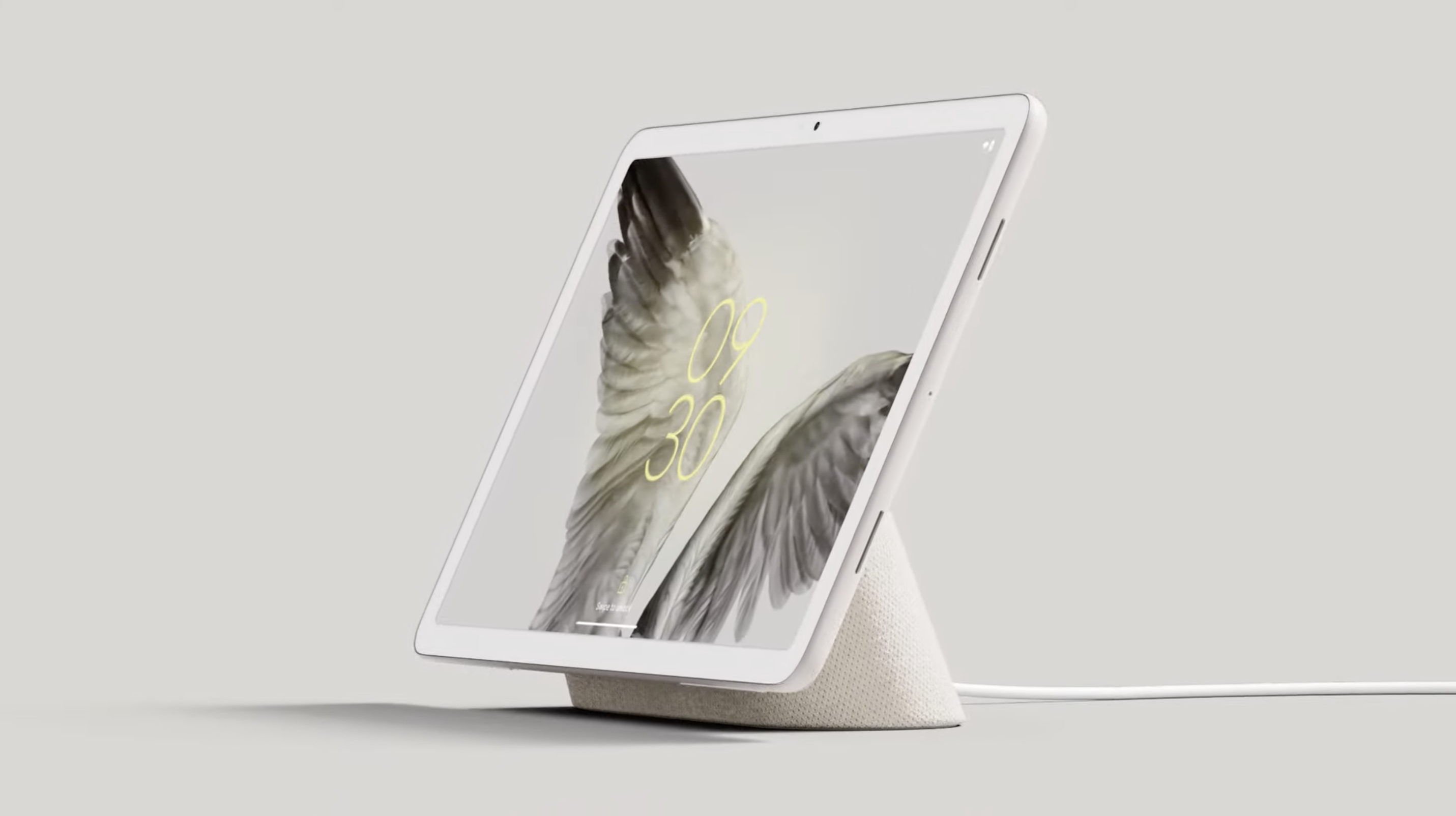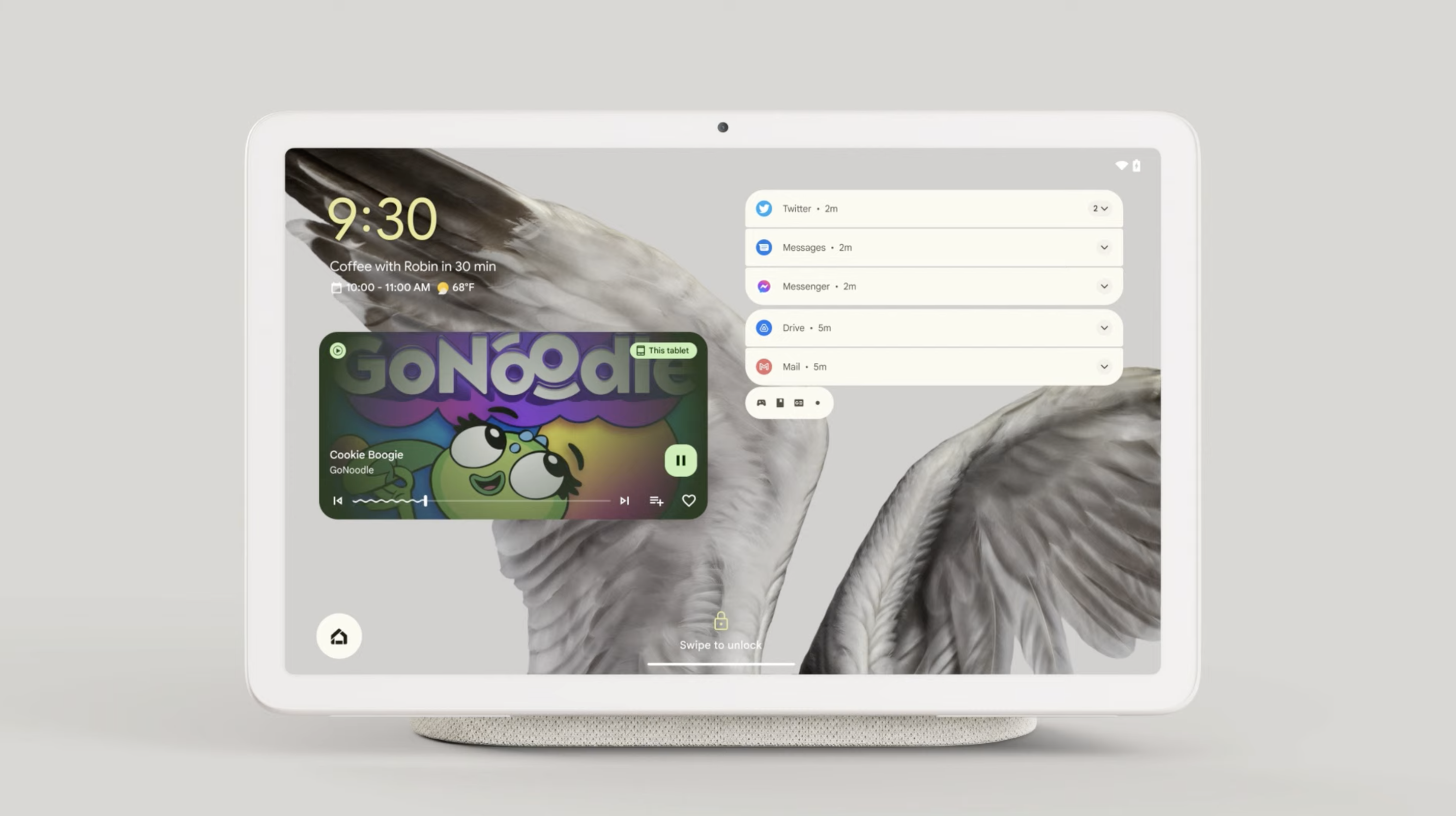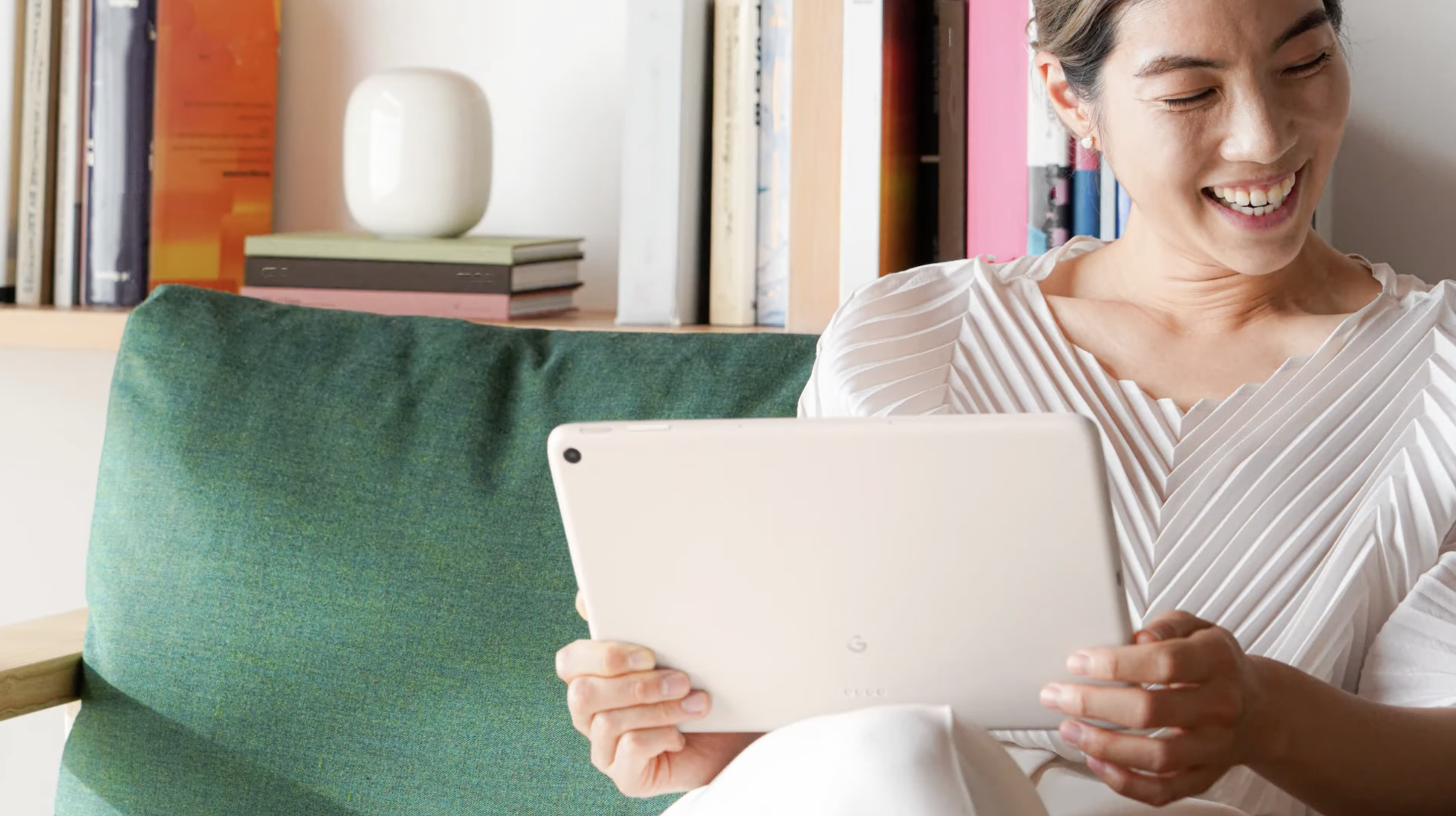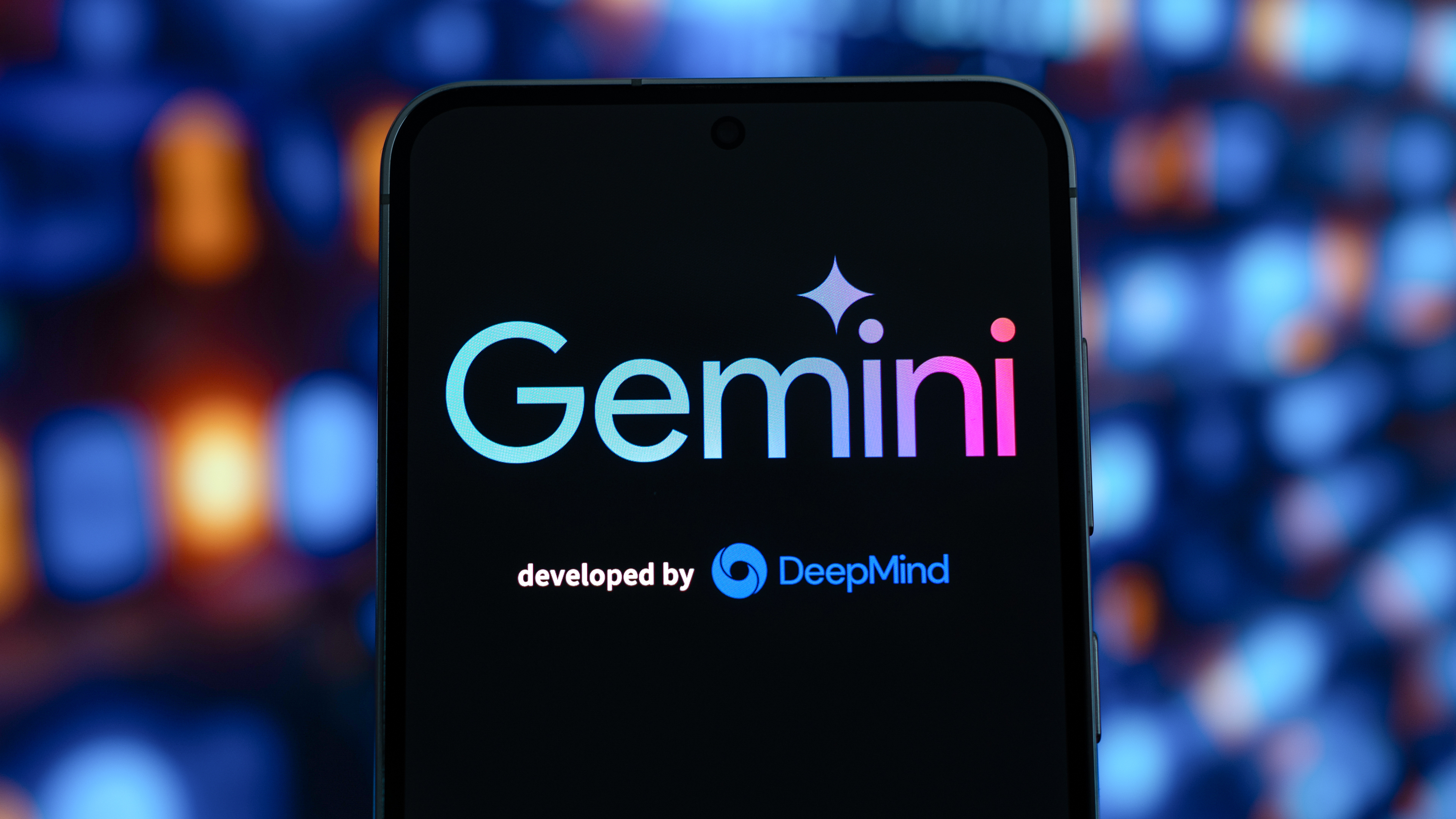Google Pixel Tablet could kill smart displays — and tablets — as we know them
This one little feature will make it so much better

Here at Tom’s Guide our expert editors are committed to bringing you the best news, reviews and guides to help you stay informed and ahead of the curve!
You are now subscribed
Your newsletter sign-up was successful
Want to add more newsletters?

Daily (Mon-Sun)
Tom's Guide Daily
Sign up to get the latest updates on all of your favorite content! From cutting-edge tech news and the hottest streaming buzz to unbeatable deals on the best products and in-depth reviews, we’ve got you covered.

Weekly on Thursday
Tom's AI Guide
Be AI savvy with your weekly newsletter summing up all the biggest AI news you need to know. Plus, analysis from our AI editor and tips on how to use the latest AI tools!

Weekly on Friday
Tom's iGuide
Unlock the vast world of Apple news straight to your inbox. With coverage on everything from exciting product launches to essential software updates, this is your go-to source for the latest updates on all the best Apple content.

Weekly on Monday
Tom's Streaming Guide
Our weekly newsletter is expertly crafted to immerse you in the world of streaming. Stay updated on the latest releases and our top recommendations across your favorite streaming platforms.
Join the club
Get full access to premium articles, exclusive features and a growing list of member rewards.
At the Google event — where the search giant officially unveiled the Pixel 7, Pixel 7 Pro, and Pixel Watch — it also released a few more details about the new Google Pixel Tablet, which is due to arrive sometime next year.
The most intriguing feature for me is that the new tablet will magnetically attach to a dock with built-in speakers. It's such an obvious idea that I'm surprised it hasn't been adopted already, at least not by Amazon.
Among the best tablets, audio quality isn't exactly a much-hyped feature — in fact, it's probably the biggest weakness for any tablet. There's only so much you can do on something that's thinner than a pencil.

There are hundreds of tablet charging docks on the market — Amazon even makes one that turns its Fire tablets into a smart home control panel — but almost none of them have a built-in speaker. Pretty much the only one I found was the Lenovo Smart Tab M10 Plus ($229, Amazon), which has dual 3W speakers in its charging dock.
So, you're either stuck with a large tablet with good audio that you can't move anywhere, or a large tablet that is mobile, but with poor audio quality.

If you wanted a large tablet or smart home display with great audio, you'd have to look for the Amazon Echo Show 10 or the Google Nest Hub Max — only problem is, you're stuck using them in one place. And, let's not talk about the audio quality on the Echo Show 15; I'm hoping that with its Fire TV upgrade, it will support Bluetooth speakers.
The new Google Pixel Tablet looks like it will offer the best of both worlds — a tablet that's portable, but one that offers great audio quality, too (albeit, when docked).
Get instant access to breaking news, the hottest reviews, great deals and helpful tips.
The Pixel Tablet (which will be powered by Google's Tensor G2 chip), will be able to do pretty much everything that a Pixel phone can. However, when it's docked, Google says it can act as a digital photo frame, and give you ready access to smart home controls. I imagine it will look similar to what you can already do with Google's smart displays, so you'll get a control panel with dials to adjust the brightness of your lights, change the thermostat, and more. And, Google says it will also let you use Google Assistant hands-free.
Nothing here is radically different from what you already get with the best smart displays, but how Google intends to present all of this on the tablet is up for conjecture.
What remains to be seen is if the Google Pixel Tablet will have a similar camera as the Nest Hub Max — specifically if it will have the same digital pan-and-zoom technology, which automatically tracks you around the room while you're on a video call. Considering the Echo Show 10 and the iPad Air (with Center Stage) both have a similar feature, it would be a real miss for Google not to include this.
I'm also curious to see if the Pixel Tablet will mean the end for the Nest Hub Max, which pretty much looks identical to the tablet — except that you can't pop off the Nest Hub Max's display.
I also wouldn't be surprised if Amazon follows suit next fall with a smart display of its own with a similar dock. It's pretty close already with its Wireless Charging Dock ($54 for the Fire 10 HD version) — all it needs is a set of speakers.
I still think there will be a place for mini smart displays like the Echo Show 5 and Lenovo's Smart Clock — not everyone wants a 10-inch tablet by their bedside — but a speaker dock/charging stand seems like a no-brainer for larger tablets.
When the iPhone and the iPad first came out, there were plenty of charging docks with speakers, many of which were kind of clumsy. You can still find some of these docks, but they're not all that common. However, they first came out when the idea of a smart home and smart speakers were still in its infancy, so having a tablet set up as some sort of hub didn't make a lot of sense. Thanks to the improvements in the Google Home app (as well as HomeKit and Alexa), its time may have come back at last.

Michael A. Prospero is the U.S. Editor-in-Chief for Tom’s Guide. He oversees all evergreen content and oversees the Homes, Smart Home, and Fitness/Wearables categories for the site. In his spare time, he also tests out the latest drones, electric scooters, and smart home gadgets, such as video doorbells. Before his tenure at Tom's Guide, he was the Reviews Editor for Laptop Magazine, a reporter at Fast Company, the Times of Trenton, and, many eons back, an intern at George magazine. He received his undergraduate degree from Boston College, where he worked on the campus newspaper The Heights, and then attended the Columbia University school of Journalism. When he’s not testing out the latest running watch, electric scooter, or skiing or training for a marathon, he’s probably using the latest sous vide machine, smoker, or pizza oven, to the delight — or chagrin — of his family.
 Club Benefits
Club Benefits





